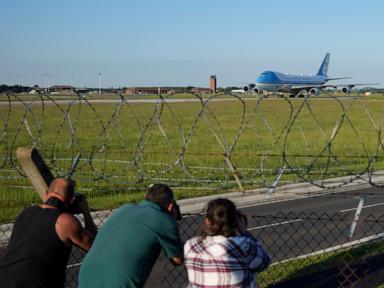ARTICLE AD BOX

Israel’s leaders are fiercely pushing back against U.S. plans to withhold American assistance from an Israeli unit accused of human rights abuses.
Axios and Israeli news outlets reported over the weekend that Secretary of State Antony Blinken intends to ban U.S. support to Israel’s Netzah Yehuda unit, the country’s all-male, ultra-Orthodox battalion at the center of several controversies in the West Bank that go back years. Netzah Yehuda has been repeatedly accused of shooting and assaulting civilians, including in a 2022 case in which several commanders handcuffed, gagged and left for dead an elderly Palestinian-American man in Israel’s West Bank.
“Sanctions must not be imposed on the Israel Defense Forces!” Israeli Prime Minister Benjamin Netanyahu posted on X, formerly known as Twitter. “The intention to impose a sanction on a unit in the IDF is the height of absurdity and a moral low.” Blinken told reporters traveling with him in Europe on Saturday that he’ll make an official announcement about his decision in the coming days.
The public dispute between Israel and the United States follows a ProPublica article Wednesday that revealed Blinken has failed to act for months after a special State Department panel recommended that he disqualify multiple Israeli military and police units from receiving U.S. assistance after reviewing allegations that they had committed flagrant violations, including extrajudicial killings and rape.
Until now, the State Department has never disqualified an Israeli military unit from receiving aid, which would make Blinken’s decision a significant shift in U.S. foreign policy. “This is a very important law,” he told reporters over the weekend, “and it’s one that we apply across the board.”
Neither Blinken nor department spokespersons have addressed the reason for the delay since the forum’s first recommendation that he take action, which was sent to Blinken in December, according to someone familiar with the memo. “This process is one that demands a careful and full review,” a State Department spokesperson told ProPublica last week.
Israeli opposition leader Yair Lapid and war cabinet member Benny Gantz are pressing the U.S. to reverse course, as well. Gantz reportedly spoke with Blinken personally on Sunday and asked him to reconsider.
On Saturday, the House voted 366-58 to approve an additional $26 billion in aid to Israel after months of delay. The Senate will likely review the legislation, a package that includes aid to Ukraine as well, early next week before sending it to President Joe Biden for his signature.
After the disclosure last week that Blinken had been urged by his own agency to impose penalties, human rights and Arab groups pushed for results. On Thursday, Sen. Chris Van Hollen, D-Md., told ProPublica he was also seeking answers from the State Department. “This report that the administration is sitting on its hands in the face of known violations is deeply troubling and, if true, would undermine the credibility of America’s commitment to applying our human rights laws in a uniform and unbiased manner,” Van Hollen said in a statement.
The State Department panel that originally made the recommendations is known as the Israel Leahy Vetting Forum. The panel, made up of Middle East and human rights experts, is named for former Sen. Patrick Leahy, D-Vt., the chief author of a 1997 law that requires the U.S. to cut off American-financed arms and training to any foreign military or law enforcement units that are credibly accused of flagrant human rights violations. Unlike individual sanctions that are up to the president’s discretion, implementing the Leahy Laws is supposed to be a requirement.
A State Department spokesperson declined to comment on the status of the other cases involving possible wrongdoing by Israeli units or confirm the substance of Blinken’s upcoming announcement. The Israeli outlet Haaretz also reported on Saturday that Netzah Yehuda is the unit he intends to ban from assistance.
The Israeli military said it has not yet been informed of Blinken’s decision about Netzah Yehuda, which is currently operating in Gaza amid the government’s campaign to eradicate Hamas following the terrorist attacks on Oct. 7. “The IDF is not aware of the issue,” a military spokesperson said, according to Reuters. “If a decision is made on the matter it will be reviewed.” The Israeli government has repeatedly argued that it has its own independent justice system in place to hold accountable those responsible for human rights abuses.
“This is a welcome first step, albeit very, very late,” said Charles Blaha, the former director of the State Department’s Office of Security and Human Rights and a former participant in the Israeli vetting forum. “There are dozens more Israeli security force units that have committed gross violations of human rights and should not be receiving US security assistance.”
It’s not clear if Netzah Yehudah is currently receiving security assistance from the U.S., other Middle East experts noted. Some said Blinken’s determination, while important symbolically, should have been made previously and without having to clear so many of the bureaucratic hurdles that do not apply to other countries. Critics have long assailed what they view as a double standard for Israel, which receives billions more in U.S. military financing than any other country.
“We are sending the IDF weapons on a daily basis for what are clear [human rights violations] in Gaza,” said Josh Paul, a former director in the State Department’s Bureau of Political-Military Affairs and a member of the vetting forum. “It’s the impression of action without any actual impact.”
.png)
 7 months ago
9
7 months ago
9








 English (US)
English (US)